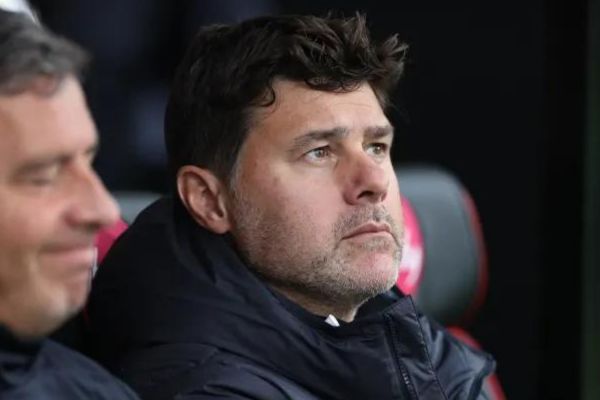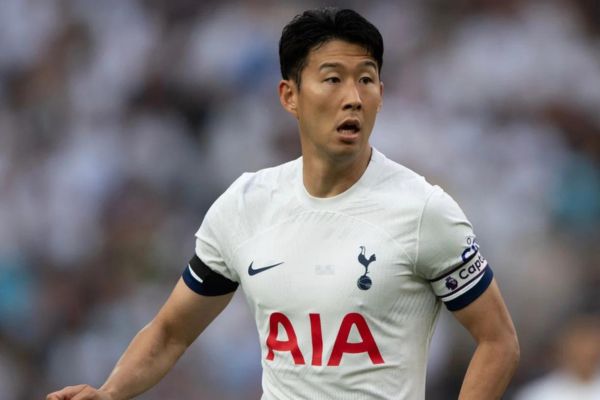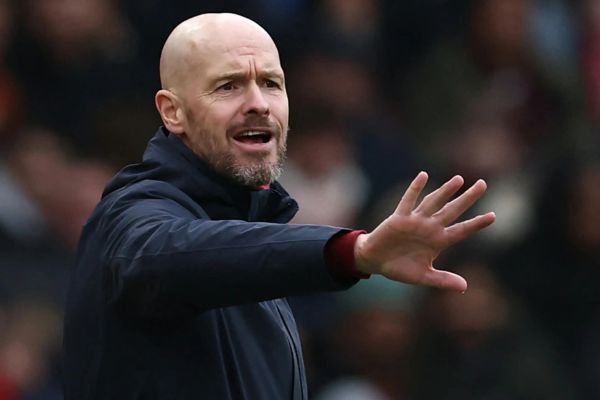Pele will always be remembered as a football hero
1 year agoThe greatest footballer of all time, a three-time World Cup champion, Pele passed away on December 29 at age 82 because of cancer, in Sao Paulo's Albert Einstein Hospital. Throughout his life, Pele has had special marks that not everyone knows about. Let's look back at the great career of the Brazilian football legend!
Join ulsfootball to watch live football tv today and enjoy stories about the greatest footballers in the world.
Who is Pele?
Football legend Pelé rose to superstardom after his World Cup performance in 1958. Pelé played professionally in Brazil for two decades, winning three World Cups before joining the New York Cosmos at the end of his career. Named by the International Football Federation (FIFA) as the Player of the Century in 1999, he has become a global ambassador for the sport of football and many other humanitarian causes.
The football legend wearing the number 10 shirt of the Brazilian team, whose real name is Edson Arantes do Nascimento, was born on October 23, 1940, in Brazil. He is the first child of Mr. João Ramos and Mrs. Dona Celeste. He was named after American inventor Thomas Edison.
His father João Ramos, better known by the nickname "Dondinho", struggled to make ends meet as a footballer. As a child, Pelé grew up in poverty. However, he nurtured his talent by filling a sock with rags, making it a ball to be kicked in the streets of Bauru.
As a young boy, Edson was nicknamed Pele by his friends as a way of teasing him for mispronouncing the name of his favorite player - Vasco De Gama goalkeeper Bile. It was not until many years later that Pele was told that, in Hebrew, the name meant miracle. And whether Pele said he never liked the name his friends gave him or that few people know Hebrew these days, football fans over the past half-century have all nodded in agreement that Pele is the real miracle that God gave them.
In a "stubborn" way, the king of the football village still asserted like a nail in many later interviews that he did not like the name Pele. Instead, he preferred to be called Edison.
Rise to be a young star
Although he still struggled with financial issues and having to work various jobs to support his family, young Pelé found his true talent and love on the pitch. Under the tutelage of his father and former national team player Waldemar de Brito, Pelé gradually matured as a player for the youth team of Bauru Athletic Club.
At just 10 years old, Pele's potential has been noticed by professional clubs. And when the 14-year-old helped the Bauru Athletic Club youth team win the Sao Paulo state championship in 1954, the official football timeline hit a milestone.
Two years later, Pele was introduced to Santos by Mr. Waldemar de Brito - Bauru's youth team coach. Mr. de Brito told his colleagues at the Santos club at the time: "This boy is going to be the greatest player in the world". Just a few months later, Pele made his debut for Santos at the age of 16 and scored twice in his first two games. Since wearing this shirt, Pele is the person with the greatest merit in turning Santos into a force in Brazilian football in the following seasons.
1957 marked Pele's first full professional season with Santos. In a season, Santos scored 143 goals in 38 games to win the state championship in São Paulo state, while Pele scored 58 goals - this is still a record to this day for this team. The boy's impressive form helped him to have his first time with the national team when he was only 16 years old.
Pele's World Cup 1958 and the great coronation
Thanks to his outstanding performance at Santos Club, Pele was selected for the Brazilian national team. At the 1958 FIFA World Cup, the 17-year-old young player Pele showed his fitness, outstanding speed, and star potential to the world.
At the biggest football festival on the planet that year, Pele was the youngest footballer to play in the tournament. Despite missing the first two games due to injury, members of the Brazilian coaching staff urged the coach to put Pele in a group-stage match against the Soviet Union.
He showed off their skillful techniques and made the Brazilian fans swoon. They understand that this boy is the future of football in the country. During the journey to the tournament that year, Pele scored 5 goals for Selecao. In particular, in Brazil's victory over Sweden 5–2 in the capital Stockholm in the final, Pele scored a double goal. More remarkably, at that time Pele was only 17 years old. After that victory, Pele burst into tears on the shoulder of goalkeeper Gylmar dos Santos Neves. Never did he think he could lift the gold trophy at that age.
The national treasure of Brazil
"National treasure" - the name the President of Brazil called Pele continues to bring joy to Selecao football fans in the following major tournaments. Pele won the World Cup with Brazil in 1962 and 1970 and went down in world history as the only player in the world to do so.
Seeing Pele's charm, Santos embarked on the "promotion" of Pele with a non-stop schedule in dozens of countries around the world.
Four years later, Pele was recognized as the best player of the tournament when he attended the 1962 World Cup. But injury kept him out for the rest of the tournament after finishing the second match against the Czech Republic. That year, Brazil was still crowned champion and the biggest contributor was Garrincha.
In the 1966 World Cup, at Goodison Park, Brazil lost 1-3 to Portugal and Pele suffered a serious injury. The defenders of Bulgaria and Portugal repeatedly cut him down. Pele limped away from the tournament angry at not being protected by the referees. At that time he even announced his retirement from the Brazilian team. However, four years later, being acutely aware of his position, he changed his mind and attended the 1970 World Cup. At the same time, Brazil also lifted the championship trophy.
After the defeat in 1966, Pele was determined to regain the crown. Pele was the player of the tournament four years later when Brazil assembled one of the greatest teams ever and lifted the Jules Rimet trophy in Mexico. This Brazilian team has achieved a winning record in all six finals matches, as well as winning all of their qualifying matches.
Struggling due to injury
On a personal level, Pelé's next two World Cups have been disappointing due to serious injuries. The superstar's groin injury was aggravated during two matches at the 1962 World Cup in Chile. He had to sit out in the final rounds while Brazil continued to win the second championship in a row. Four years later, in England, a barrage of brutal attacks by opposing defenders again forced him to sit on the bench with a leg injury. Brazil was eliminated from the World Cup that year after one round.
Despite the disappointment on the world stage, Pelé continued to excel in his Santos club team. Teams have frequently changed their playstyle to deal with Santos' top scorer. Despite this, he still scored 60 goals in the 1964 season and 101 goals the following year. In the late 1960s, the two factions involved in the Nigerian civil war agreed to a 48-hour ceasefire so they could watch Pelé play in a friendly in Lagos.
Next, the 1970 World Cup in Mexico marked the glorious triumph of Pelé with the Brazilian team. Leading a formidable squad, he scored four goals in the tournament, including one in the final that gave Brazil a 4–1 win over Italy.
Pelé's legacy
Around 1970, Pelé is said to have decided to retire while at the peak of his career. However, he was eventually persuaded to play one more World Cup for Brazil in Mexico. Pelé contributed to Brazil's league title with goals and several key assists, earning himself the Ballon d'Or. Pelé remained with the Brazilian national team for about another year and retired in 1971.
Three years later, he also said goodbye to his fans at Santos. However, his days as a player did not end. In 1975, he was invited back to the field to play for the New York Cosmos and helped attract spectators to the North American Soccer Championship. He played his last match at a New York Cosmos-Santos friendly in October 1977 and played for both sides. He retired with a total of 1,281 goals in 1,363 games.
By the time he officially retired in 1977, Pelé had amassed a seemingly unbreakable set of records. He scored a total of 1,283 goals in 1,363 matches, making him the top scorer in the history of the Brazilian national team and the history of FIFA. Equally impressive, he scored 92 hat-tricks. He also set the record for the most FIFA World Cup wins by an individual, with three medals of his own.
The decision to retire does not diminish Pelé's reputation in public. He is still a favorite athlete and is active in many professional arenas.
In 1978, Pelé was awarded the International Peace Prize for his contributions to the United Nations Children's Fund (UNICEF). He has also been appointed as Brazil's Special Minister for Sports and as a United Nations ambassador for ecology and the environment.
Pele was given the title of Honorary Knight
British Queen Elizabeth II made Pele an Honorary Knight in 1997 due to the humanitarian activities that Pele participated in.
"This honor will forever be in my memory," Pele wrote on Twitter 20 years later. "I thank the British people for their warm affection for me."
Pele was named "Athlete of the Century"
Pelé was named "Player of the Century" by FIFA in 1999, along with Argentine player Diego Maradona. Although he had never competed in the Olympics due to previous regulations banning professional athletes from participating, Pele's athletic talent and "fair play" spirit touched the hearts of Olympic Committee members.
IOC President Thomas Bach said: "In everything that Pele has done, both on and off the pitch, Pele embodies the noble values of the Olympic spirit of precious friendship."
Pele sets a Guinness World Record
In 2013, Pele won two Guinness World Records: Most goals scored in his career and Most World Cup Winners.
Pele scored 1,283 goals in more than 20 years of his football career from September 7, 1956, to October 1, 1977. Pele is also the only player in football history to have won the World Cup three times.
Pele's Olympic Medal
In 2016, the President of the International Olympic Committee (IOC) went to Pele's hometown in Santos to present the Olympic Medal to the king of football. This is the highest title given to an athlete.
In conclusion
In his life journey, Edson (birth name of King of Football Pele) has captivated people with his outstanding sports talent, and efforts for peace. He has gone on missions around the world to spread love, which he considers the cure-all. Pele's message will become a legacy for generations to come.
Other news

Chelsea's Injury Crisis: A Look at the Missing Players Under Mauricio Pochettino
1 year ago
Tottenham's Plan for Son Heung-min: A New Contract on the Horizon
1 year ago
Ole Gunnar Solskjaer Addresses The "Disease of Modern Football"
1 year ago
Premier League Crisis Club of the Week 2023/24: Manchester United
1 year ago
Erik ten Hag's Injury Woes Continue as Man Utd Announce Squad for Bayern Clash
1 year ago